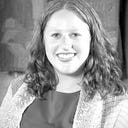Member-only story
We Cannot Avert Our Eyes
Parashat Tzaria and the Solar Eclipse
This past Monday, I stood in the Trader Joe’s parking lot with a group of strangers, sharing eclipse glasses and looking up at the sky. Together, we stood profoundly in awe, marveling at nature and the miracle passing by right above us.
Professor Google taught me that a solar eclipse is when the moon’s path completely intersects with the path of the sun. For a very short time, those who are in the path of totality will have the opportunity to see one of nature’s most inspiring sights.
But here’s the catch: for those who are able to see a full or partial solar eclipse, this rare sight is potentially dangerous. Looking directly at the sunlight — even when mostly covered by the moon, can irreparably damage your eyes.
To view the beauty, you need protection.
A solar eclipse is a time when our brightest light will be covered by darkness, when it will hurt to look. When our eyes can literally burn as the forces of light and dark collide.
This week’s Torah portion, too, urges us to avert our eyes. Not from the sun, but rather, from a litany of skin ailments and infections. It details everything from rashes to boils, from hairs to scales, from puss to streaks. Parsahat Tazria is, for lack of a better word, gross!
